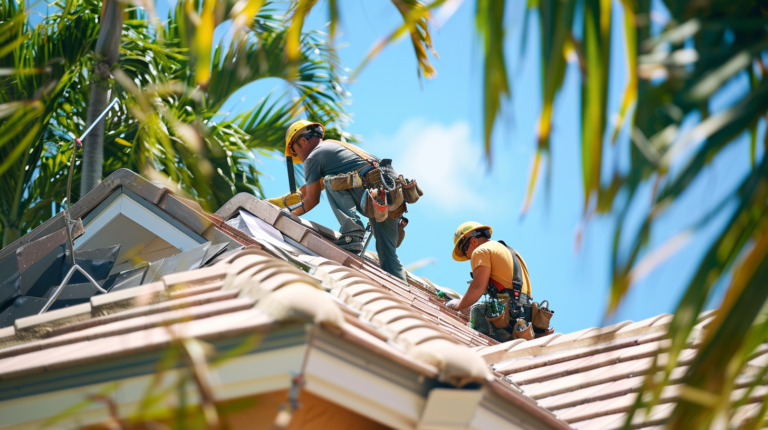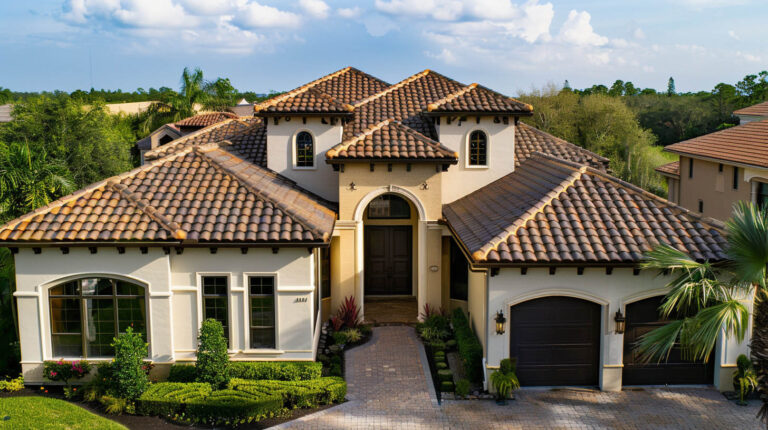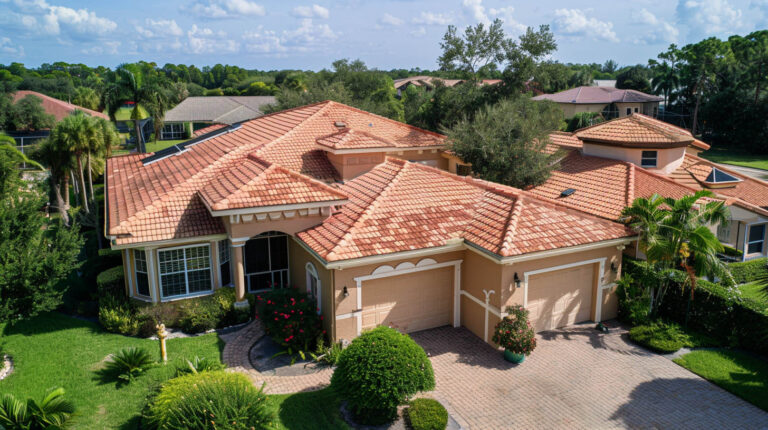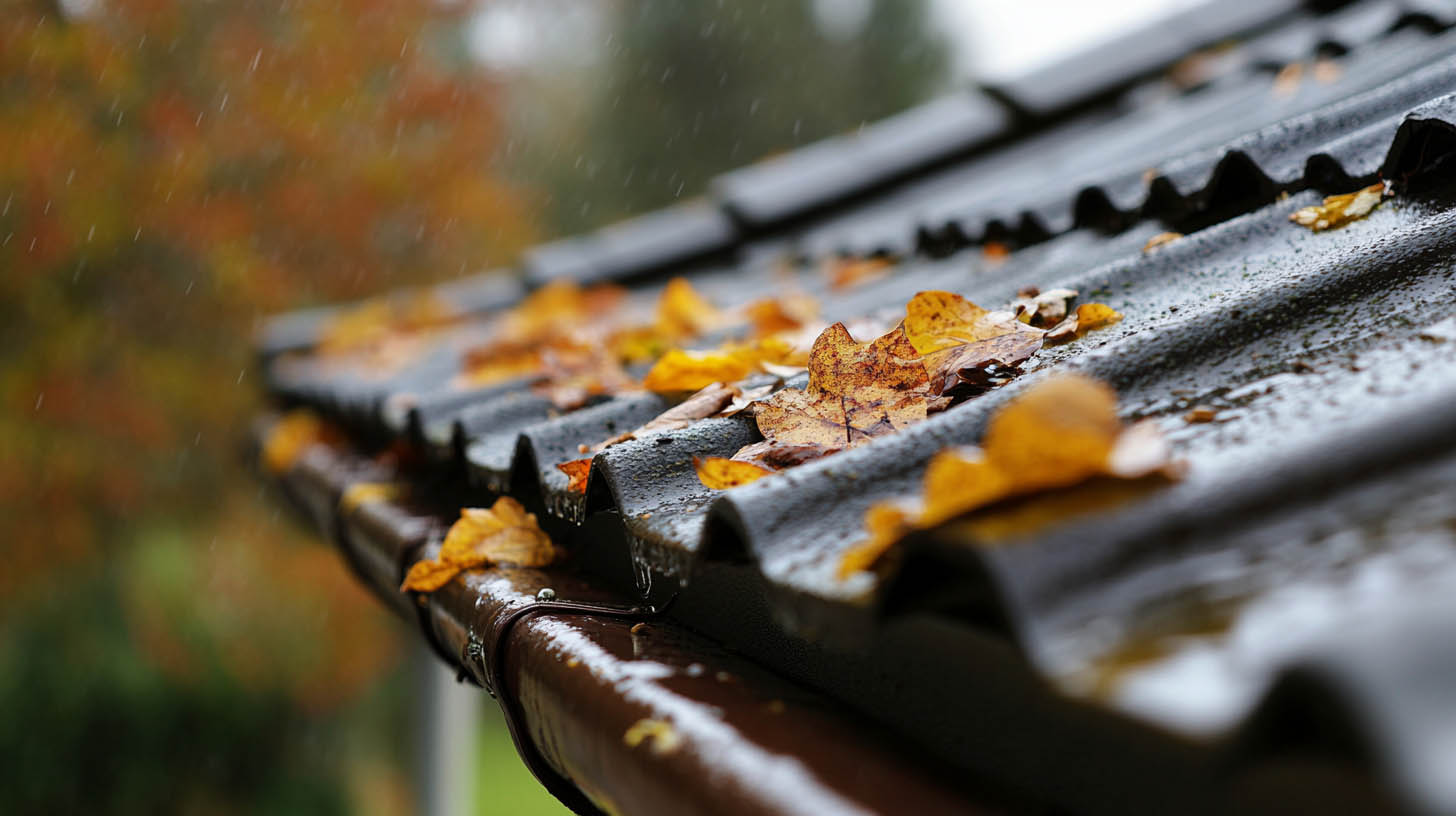
Blog
How to Prolong Your Roof’s Life in Jacksonville’s Humid Conditions
Jacksonville’s humid subtropical climate can pose unique challenges for homeowners, particularly when it comes to roofing. High moisture, frequent storms, and intense summer heat accelerate wear on roofs, making regular maintenance essential. Avenue Roofing offers services designed to help Jacksonville homeowners extend their roof’s lifespan with effective solutions that withstand local conditions.
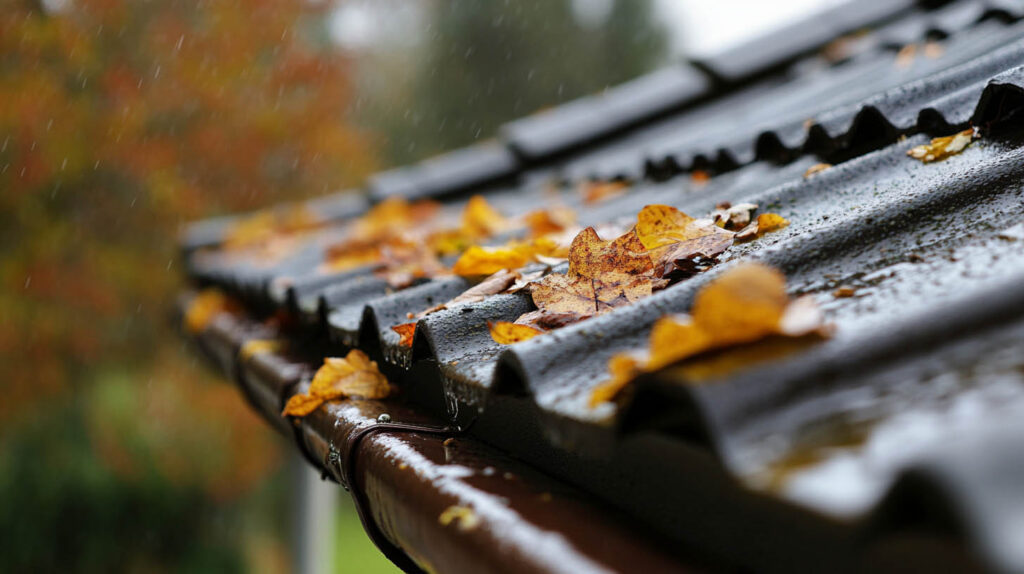
Understanding Humidity’s Effects on Roofing
1. The Role of Humidity in Roof Deterioration
Florida’s humidity encourages mold, mildew, and algae growth on roofing materials, especially asphalt shingles. These organisms deteriorate shingles over time and diminish curb appeal, impacting the roof’s integrity. Moisture also contributes to water pooling and damage, leading to leaks and further degradation of roofing materials.
Fact Check: High humidity and algae growth can reduce the lifespan of asphalt shingles by up to 10-15 years without proper maintenance.
2. Typical Roofing Problems in Humid Climates
- Mold and Mildew: These can grow on the shaded, damp areas of your roof, leading to premature wear.
- Algae: Dark streaks caused by algae are common on Florida roofs, making regular cleaning essential.
- Heat Stress: High humidity paired with Jacksonville’s summer heat stresses roofing materials, leading to cracking and wear.
Choosing the Right Materials for Humid Climates
Selecting roofing materials that can withstand Jacksonville’s humidity is crucial for durability and efficiency.
Asphalt Shingles with Algae Resistance
While affordable and visually versatile, asphalt shingles require routine maintenance to stay mold-free. Many manufacturers offer algae-resistant shingles, ideal for Jacksonville’s climate, as these can withstand humid conditions more effectively.
Metal Roofs for Durability
Metal roofing is highly resistant to mold and algae and provides excellent durability in humid areas. Additionally, metal roofs reflect solar heat, enhancing energy efficiency during Jacksonville’s hot months.
Tile Roofs for Aesthetic Appeal
Clay and concrete tiles resist mold and mildew better than asphalt and are also highly durable. While they cost more initially, tile roofs last significantly longer and are well-suited for Florida’s climate, providing aesthetic appeal and strong structural integrity.
Enhancing Energy Efficiency and Insulation
Importance of Proper Insulation
A well-insulated roof regulates indoor temperatures, which is especially important in a humid climate like Jacksonville’s. Insulation helps reduce energy costs by preventing heat from penetrating the home, allowing HVAC systems to operate more efficiently.
Ventilation and Humidity Control
Proper ventilation keeps air circulating in the attic, preventing moisture buildup that could damage the roof from below. During high humidity months, an effective ventilation system ensures that heat and moisture are efficiently expelled, preserving roofing materials.
Regular Roof Maintenance for Long-Lasting Protection
Routine Inspections and Early Repairs
Scheduling routine inspections helps detect early signs of mold, water pooling, or shingle damage. Addressing minor issues like loose shingles or algae streaks promptly prevents them from developing into costly repairs.
Cleaning Your Roof for Better Performance
Regular cleaning removes debris, mold, and algae, protecting your roof from further damage. Many homeowners in Jacksonville find that scheduling professional cleanings not only enhances appearance but also preserves the roof’s condition in humid conditions.
Sustainability and Environmental Considerations
Jacksonville’s humid climate makes sustainable roofing choices both practical and eco-friendly. Opting for materials that resist mold and require minimal maintenance, such as metal and tile, contributes to a lower environmental footprint and long-term cost savings.
FAQs
1. Why is regular roof cleaning essential in Jacksonville?
Regular cleaning removes algae and mold, which thrive in Jacksonville’s humidity, preserving both the appearance and lifespan of your roof.
2. What roofing material is best for humid climates?
Metal and tile are highly recommended for Jacksonville’s climate, as they resist mold and algae growth better than asphalt shingles.
3. How does attic ventilation help prevent roof damage?
Ventilation reduces heat and moisture buildup in the attic, which helps protect shingles from cracking or warping.
4. Do algae-resistant shingles really make a difference?
Yes, algae-resistant shingles are effective in humid climates, helping reduce algae growth and extending the roof’s life.
5. How often should I schedule roof inspections?
Twice a year, ideally before and after Florida’s hurricane season, to address any damage promptly.
Conclusion
Prolonging your roof’s lifespan in Jacksonville’s humid climate requires a proactive approach to maintenance, choosing the right materials, and ensuring proper ventilation. Avenue Roofing provides expert guidance on maintaining and optimizing roofs in Jacksonville, helping you protect your investment and enjoy a reliable, attractive roof for years to come.
To learn more about effective post-storm cleanup tips for Jacksonville roofs, click here.
